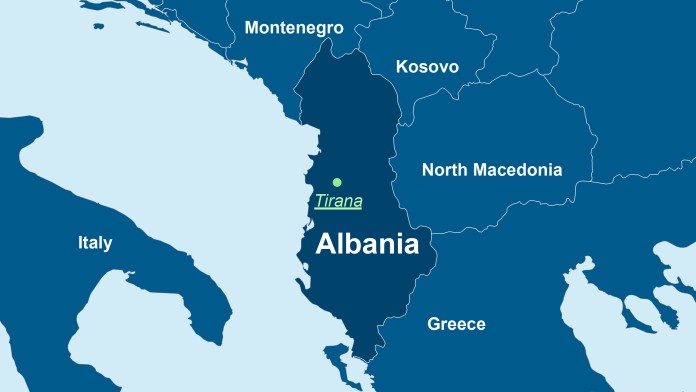
Until the end of the 1980s, Albania was marked by decades of dictatorship. Germany has supported the country’s transformation since 1988; Albania has undergone noticeable social and economic development since then. It has been a candidate for accession to the EU since 2014. The accession talks officially started in July 2022. Since the start of the cooperation, KfW has committed about EUR 1.2 billion for the country – making it one of the most important cooperation countries in southeastern Europe.
The main focus was initially on directly alleviating poverty and providing emergency aid. The German Federal Government is now promoting the following areas through KfW:
To make the still precarious energy supply more secure, KfW is investing in the expansion of high-voltage grids. A connection between Albania and Kosovo has been completed and a third connection to North Macedonia is under construction. The transmission and distribution of electricity within Albania will also be modernised, thereby reducing electricity losses, improving the safety of the dams of hydropower power stations and rehabilitating public buildings for energy efficiency.
KfW is also supporting the rehabilitation of student dormitories in Tirana, which will also reduce energy losses and improve living conditions for the students. In addition, the Albanian government and KfW are working together with the other donors in the sector to comprehensively reform the sector.
Albania has plenty of water, but in some cities people receive only two hours of drinking water a day. Moreover, sanitation systems lack the necessary structure. On behalf of the German government, KfW is supporting the modernisation of the municipal infrastructure. Germany is currently the biggest bilateral donor in this area and, as lead donor, coordinates the other donors. At the request of the Albanian government, KfW supported the country in developing national master plans for the water and wastewater sector and the waste sector. KfW invests nationwide in sustainable urban development by modernising the water supply and wastewater and waste disposal.
Through KfW, the German Federal Government supports the side of labour supply by strengthening vocational training and education. The focus is on practical training aligned with the needs of the labour market. The first step is to expand a vocational training centre near Tirana. KfW also supports the labour demand side. For example, the Albanian credit guarantee fund ADGF was set up with funds from the EU and the German Federal Government. The investments will create jobs and encourage employment.
KfW Office Tirana
Director KfW Office: Brit Horschke
Rruga ‘Asim Zeneli’ No 6/10
Tirana
Albania